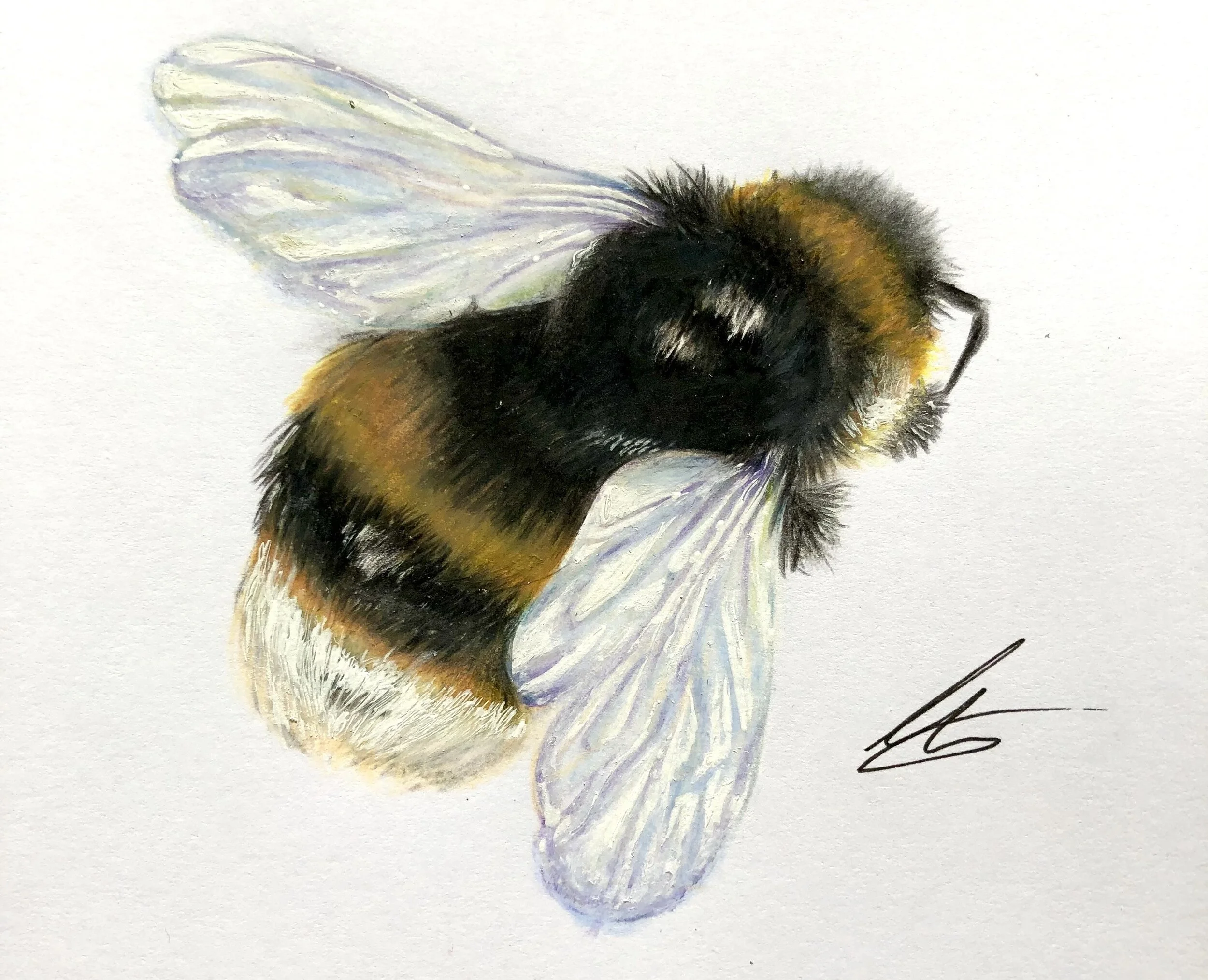Book Recommendations: The Beekeeper of Aleppo by Christy Lefteri
Illustrated by Tula Wild.I stumbled across Christy Lefteri’s The Beekeeper of Aleppo by chance.
The year was 2020. I had just started my Erasmus year in Prague and was sharing a room with another student. Three weeks after having met, my roommate, Alicia, and I had to quarantine in our room. It’s safe to say that we were both a little worried about whether we’d still be as friendly afterwards - ten days just seeing one other person is bound to be a little intense.
A few days into our isolation, Alicia was reading Christy Lefteri’s The Beekeeper of Aleppo. The title sounded intriguing. She told me that it focusses on two families who have escaped war-torn Syria, and went on to explain why she had chosen the book. Before she left Germany to travel to Prague, Alicia and her boyfriend wanted a book that they could both read while not seeing each other for an unknown length of time. The Beekeeper of Aleppo is the book they chose together.
Lefteri’s The Beekeeper of Aleppo tells the story of two families who have escaped war-torn Syria. Their stories are told from the perspective of the two fathers - lifelong friends who used to keep bees in Aleppo. It is a truly harrowing story; the two families flee Syria and attempt to find safety in the UK after suffering a great deal of loss.
Lefteri was inspired to write the novel after volunteering at a Unicef-supported refugee centre in Athens, where she met many people suffering physical and mental scars from their traumas. Her writing was heavily influenced by the people she met in this centre.
Alicia finished the novel while we were in quarantine and she later lent it to me. What followed were regular conversations about the tragic events in the story. While we were enjoying time in Prague, it felt paradoxical to be discussing the unimaginable suffering of characters inspired by millions of real people. I felt guilty. But the differences highlight how crucial it is for us to learn about plights so different from our own and discussing the book with another person allowed us to compare our character predictions and views on our countries’ refugee policies. Our discussions illuminated many of the intricacies of plot and character behind the headlines we hear in the news. Lefteri tells a story I will not forget for a long time.
I would highly recommend the novel; it sheds light on the physical and emotional losses that people are forced to face when trying to find physical safety and proves, yet again, that within all of the statistics and the numbers we read, there are real people with real stories to tell. People who may never mentally escape from what they have suffered.
What makes Lefteri’s novel different is her focus on the main speaker, Nuri, and his wife, Afra’s, relationship: she refuses to shy away from the personal difficulties they face in their relationship, which was once so solid. The characters’ journeys may not be relatable to everyone, but their feelings, thoughts, hopes, and fears affirm a basic sense of humanity. There are pinpricks of humour interlaced in the novel too, which add welcome, if unnerving, breaks from the seriousness.
While lockdown meant that everything was shut, Alicia and I were lucky enough to be able to walk to a park to read. As we discovered, Havlíčkovy sady, an open park just outside the city centre, hosts under-appreciated views over Prague. We found a really peaceful reading spot through a clearing on a small path covered by thorns and brambles. Trees perfectly framed the view over the less touristy parts of Prague: it was a perfect city view. I’m not going to try and describe the reading place in too much detail - Alicia and I found the area by mistake so making it sound intentionally beautiful may detract from the actual experience of being there. I think it was the unexpectedness of finding such an undiscovered and picturesque location that made it feel so special. Needless to say, I read most of The Beekeeper of Aleppo here and it reinstated my love of reading - an activity that I had neglected for a while.
The Beekeeper of Aleppo ignited many discussions - whether that was between Alicia and me, Alicia and her boyfriend, or amongst other friends made on Erasmus. Lefteri’s story demonstrates the timeless and universal power a book can have in sparking conversations. This novel is haunting, but it is also filled with hope for Nuri and Afra’s relationship, hope for restarting beekeeping in the UK, and hope for regaining some sort of clarity amongst a blurry, undecipherable world.
